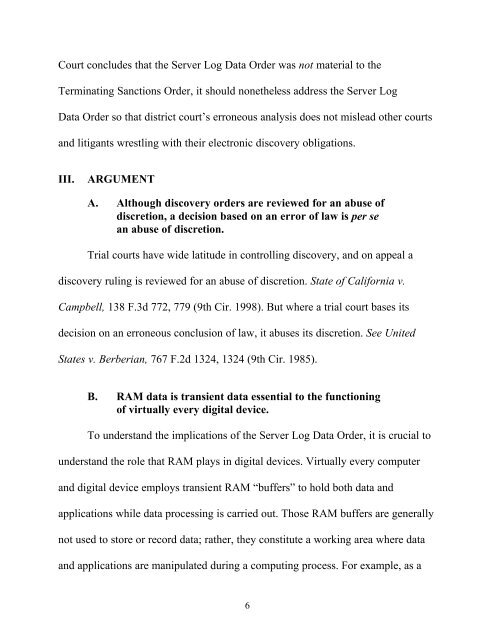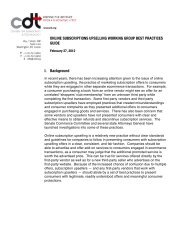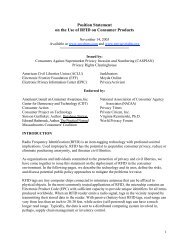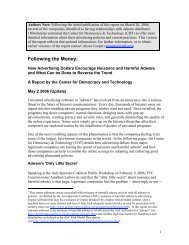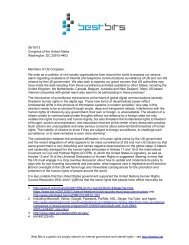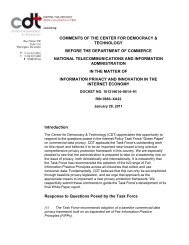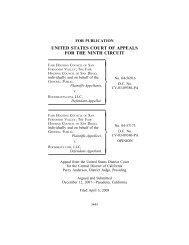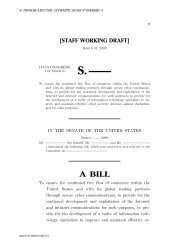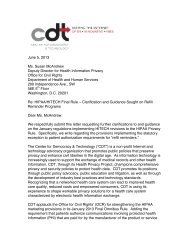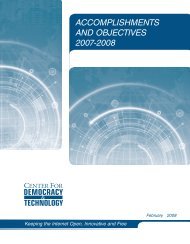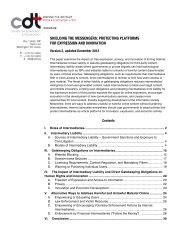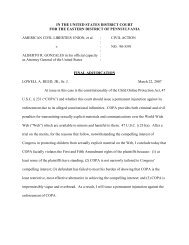20090212 Amicus Brief.pdf - Electronic Frontier Foundation
20090212 Amicus Brief.pdf - Electronic Frontier Foundation
20090212 Amicus Brief.pdf - Electronic Frontier Foundation
You also want an ePaper? Increase the reach of your titles
YUMPU automatically turns print PDFs into web optimized ePapers that Google loves.
Court concludes that the Server Log Data Order was not material to the<br />
Terminating Sanctions Order, it should nonetheless address the Server Log<br />
Data Order so that district court’s erroneous analysis does not mislead other courts<br />
and litigants wrestling with their electronic discovery obligations.<br />
III. ARGUMENT<br />
A. Although discovery orders are reviewed for an abuse of<br />
discretion, a decision based on an error of law is per se<br />
an abuse of discretion.<br />
Trial courts have wide latitude in controlling discovery, and on appeal a<br />
discovery ruling is reviewed for an abuse of discretion. State of California v.<br />
Campbell, 138 F.3d 772, 779 (9th Cir. 1998). But where a trial court bases its<br />
decision on an erroneous conclusion of law, it abuses its discretion. See United<br />
States v. Berberian, 767 F.2d 1324, 1324 (9th Cir. 1985).<br />
B. RAM data is transient data essential to the functioning<br />
of virtually every digital device.<br />
To understand the implications of the Server Log Data Order, it is crucial to<br />
understand the role that RAM plays in digital devices. Virtually every computer<br />
and digital device employs transient RAM “buffers” to hold both data and<br />
applications while data processing is carried out. Those RAM buffers are generally<br />
not used to store or record data; rather, they constitute a working area where data<br />
and applications are manipulated during a computing process. For example, as a<br />
6


